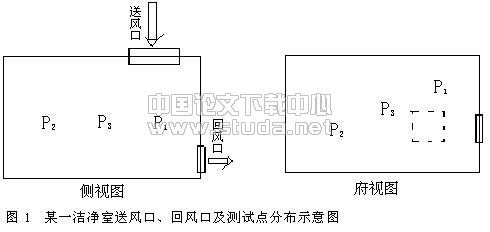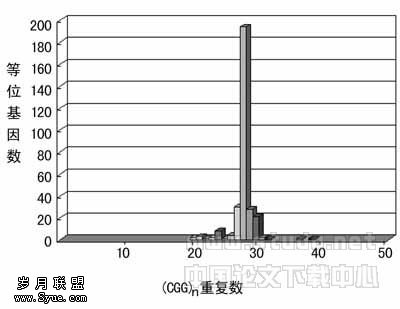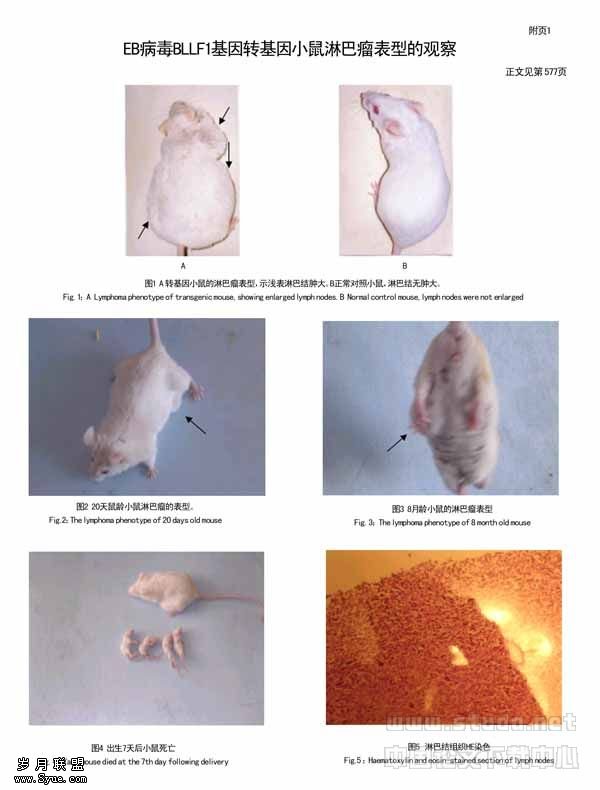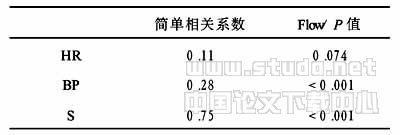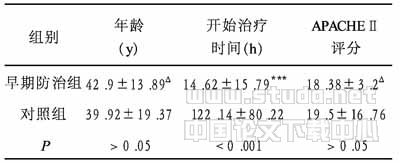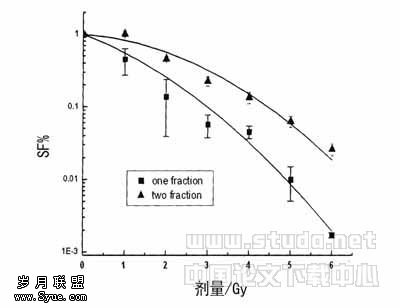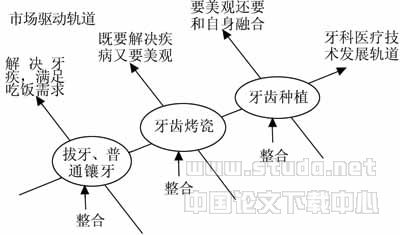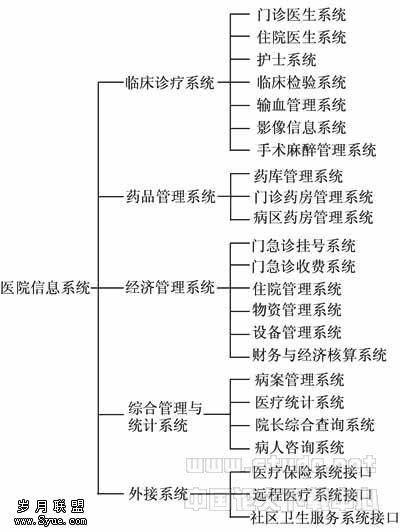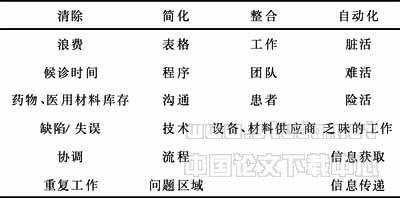哈萨克族人群DNA损伤修复基因hOGG1多态性研究
【摘要】 目的 研究新疆哈萨克族人群DNA氧化性损伤遗传易感性。方法 采用PCR-RFLP技术,对200名正常的哈萨克人进行hOGG1基因326位点Ser/Cys多态性分析。结果 人群中Ser/Ser、 Ser/Cys、 Cys/Cy基因型频率分别为0.49、0.34、0.17,跟以往研究中的人、日本人、韩国人人群中的基因分布相似,但与其他的高加索人群中的基因分布有很大的差别;并且发现吸烟者中的Cys/Cy基因的频率几乎是不吸烟者的4倍,两组之间各等位基因频率差异有显著性(P<0.05)。结论 本研究的结果表明哈萨克族DNA修复基因hOGG1多态性与吸烟相关。
【关键词】 吸烟 hOGG1 多态性 哈萨克族人群 肿瘤易感性
【Abstract】 Ojbective To study the polymorphism distribution of Ser326Cys on hOGG1 gene in hazakh population. Methods Ser326Cys polymorphism analysis on hOGG1 gene was determined by PCR-RFLP on 200 normal hazakh subjects. Results The frequencies of the allelic gene Ser/Ser, Ser/Cys, Cys/Cy were 0.49, 0.34, 0.17 respectively. The results were similar to those studied previously in Chinese and Japansese populations,but were different from those in Caucasian populations. The frequency of the allelic gene Cys/Cys in the smokers was higher than that in the nonsmokers(P<0.05). Conclusion The results of the study suggest that the polymorphism of DNA repair gene hOGG1 is associated with smoking.
【Key words】 smoking; hOGG1; polymorphism; hazakh population; cancer susceptibility
吸烟是癌症,特别是肺癌、食管癌发生的重要危险因素,家族研究表明遗传易感性起重要作用,DNA修复能力下降的个体发生癌症的危险性增加。DNA中的鸟嘌呤残基受到攻击后,产生8-羟基鸟嘌呤(8-OHdG),它可以导致DNA链空间构象的改变,在DNA复制时引起G:C→T:A颠换[1]。人类8-羟基鸟嘌呤糖苷酶(human 8-hydroxygumine glycosylase, hOGG1)是一种DNA修复酶,可以特异切除8-羟基鸟嘌呤,对损伤了的DNA进行还原修复[2,3]。
研究发现,在hOGG1基因中326密码子处的Ser/Cys多态性与其编码的酶活性密切相关。近年来,国内外已经有人开始研究hOGG1基因多态性与各种肿瘤或者疾病的关系[4~6],但是还没有哈萨克族人群中hOGG1基因多态性研究的报道,而哈萨克人群中食管癌高发。鉴于此,我们初步探索了哈萨克族人群中的hOGG1基因多态性与吸烟的关系。
1 材料与方法
在收集前进行一项问卷调查,如发现个体有肿瘤、重大疾患或者家族遗传性肿瘤史等情况,将会被排除在研究之外。共收集200名健康的、无任何血缘关系的新疆哈萨克族个体的2ml静脉血,放置于EDTA抗凝管中,用Takara DNA提取试剂盒提取DNA,于-20℃保存。用PCR-RFLP方法对hOGG1 的Ser326Cys基因型进行分析,引物为5′-ACTGTCACTAGTCTCACCAG-3′和5′-GGAAGGTGCTTGGGGAAT-3′,反应体系为50μl,含有2μl已提取的DNA作为模板,10×buffer 5μl(Mg2+ 包括在内),dNTP混合物8μl, 引物各1μl(20pmol/μl ),TaqDNA聚合酶0.5μl(Takara,Japan )。反应混合物先在94℃预热5min,然后在94℃40s,55℃40s,72℃40s的条件下进行35个循环,再在72℃下延伸10min。PCR产物用Fnu4HI限制性内切酶(Fenmentas)在37℃下切割16h,用2%的琼脂糖凝胶电泳分离酶切片断。
我们采用SPSS13.0软件对结果进行χ2检验。
2 结果
200名个体的平均年龄为39.1岁,73名女性,127名男性,75名吸烟,125名不吸烟。 产物经过Fnu4HI限制性内切酶切割后,产生了两种不同的条带,Ser/Ser基因型在200bp处有一条带,Ser/Cys基因型在200bp、100bp处各有一条带,Cys/Cys在100bp处有一个条带(如图1所示)。人群中基因频率处于Hardy-weinberg平衡状态(χ2为0.059,P=0.81>0.05),说明这些个体来自大的群体,个体间是随即婚配,不存在明显的的选择、迁移等因素对遗传平衡的影响。三种基因型Ser/Ser、Ser/Cys、Cys/Cy 的频率分别为 0.49、0.34、0.17。在哈萨克、中国人、日本人、韩国人当中,Cys/Cys等位基因的频率明显高于高加索人(见表1)。吸烟者中Cys/Cys突变基因型频率明显高于不吸烟者,前者几乎是后者的4倍,把Ser/Ser基因型与Ser/Cys基因型合并与Cys/Cys基因型进行比较,发现吸烟者与不吸烟者两组之间差异有显著性(fisher’s extract test,two sided P=0.001)(见表2)。1为100bp的DNA marker 2,3为Ser/Ser基因型 4为Cys/Cys基因型 5为Ser/Cys基因型表1 各种不同人群中hOGG1基因Ser326Cys多态性分布表2 吸烟与不吸烟两组hOGG1 Ser/Cys 基因型的比较
3 讨论
基因多态性是后基因时代的一个重要研究领域,研究表明,人类约有90%的肿瘤发生可能与环境中致癌因子有关,人群对各种致癌因子的反应,存在明显的差异,这种差异主要是由于肿瘤易患基因的多态性决定的,人们已经寄希望于它来定位肿瘤、精神疾患、心血管疾病和糖尿病等一系列多基因复杂疾病的主基因[13]。
细胞的有氧代谢过程以及细胞环境诱变剂,如紫外线、电离辐射、化学物质等等,均可产生物活性氧(Reactive oxygen species, ROS),而基因组DNA容易受到ROS的攻击而形成DNA氧化损伤[14]。在DNA氧化损伤中,8-OHdG 形成的频率最高,致突变能力最强,是肿瘤发生和的重要因素,其修复能力与个体癌症的易患性密切相关[15~19],许多资料都表明癌症组织内DNA中8-OHdG的含量明显高于癌旁组织[20]。而hOGG1基因是人体细胞中DNA氧化损伤修复的关键酶,具有特异的切除和修复8-OHdG,在维持基因组稳定中肿瘤预防上具有举足轻重的作用。人群流行病学研究显示:hOGG1基因在不同人群存在遗传多态性,并与肿瘤易患性密切相关,其突变或者缺失将会增加个体罹患肿瘤的风险[21,22],有报道指出hOGG1变异基因型编码的蛋白,清除8-OHdG、修复DNA的能力显著低于hOGG1野生型基因型编码的蛋白[23~26],体外实验发现Cys/Cys的修复能力比Ser/Ser要约低7倍[27]。
肿瘤发病率目前排在新疆所有病症的第一位。其特点是:食管恶性肿瘤以哈萨克族最高,且远高于其他民族的患癌率。本研究对新疆哈萨克族正常人群中的hOGG1基因Ser/Cys的多态性进行了分析,结果发现频率分布情况与以往研究的日本人、中国人、韩国人相似,而与几种高加索白人有很大的不同,这也表明hOGG1基因Ser/Cys的多态性的分布与人种的不同有很大的关系,吸烟者与不吸烟者中hOGG1基因Ser/Cys的多态性的分布差异有统计学意义,尤其是Cys/Cys的频率前者将近是后者的4倍,这表明hOGG1基因多态性与吸烟有很大的关联,这是因为香烟中含有许多致癌物质,香烟成分溶于水或食物中脂质过氧化物所产生的ROS,可直接作用于脱氧核糖核酸,使其链断裂成碎片,特别是对存在有癌基因细胞的脱氧核糖核酸破坏更明显,从而导致基因突变,引起携带Cys/Cys的个体中修复能力降低,造成8-OHdG在基因组中存留而导致了相关的G:C→T:A突变的积累,以至使发生肿瘤的风险性增加。
我们进一步的工作是要研究hOGG1基因在不同肿瘤、不同人群中的多态分布情况,以深入了解8-OHdG及其hOGG1修复途径与人类特定肿瘤发生的确切关系,同时探讨hOGG1多态是否可以作为个体肿瘤易患性的一个预警性标志物,能否在肿瘤风险性评价当中起到重要作用。当然,肿瘤的发生是一个多阶段和多基因参与的过程,单个基因的改变是不足以解释肿瘤发生的机制,因此,预测特定肿瘤的风险必须考虑多指标联合的应用。
【】
1 Shibutaini S, Takeshima M, Grollman AP,et al.Insertion of specific bases during DNA synthesis past the oxidation-damaged base 8-oxodG. Nature, 1991,349:431-434.
2 Glassner BJ, Posnick LM, Samson LD,et al.The influence of DNA glycosylases on spontaneous mutation. Mutat Res,1998,400:33-44.
3 Upadhyay S, Chatterjee A,Trink B, et al. TAp63gamma regulates hOGG1 and repair of oxidative damage in cancer cell lines. Biochem Biophys Res Commun,2007,356(4):823-828.
4 Shinmura K, Kohno T, Tosaka M, et al. Infrequent mutations of the hOGG1 gene, that is involved in the excision of 8-hydroxyguanine in damaged DNA, in human gastric cancer, Jpn J Cancer Res,1998,89(8):825-828.
5 Sugimura H, Kohno T, Wakai K, et al. hOGG1 Ser326Cys polymorphism and lung cancer Susceptibility. Cancer Epidemiol Biomarker Prev, 1999,8(8):669-674.
6 邢德印,谭文,宋南,等.DNA修复基因hOGG1多态与食管癌遗传易感性.中华医学遗传杂志,2000,17(6):377-380.
7 Elahi A, Zheng Z, Park J,et al.The human OGG1 DNA repair enzyme and its association with orolaryngeal cancer risk. Carcinogenesis 2002,23:1229-1234.
8 Wikman H, Risch A, Klimek F,et al. hOGG1 polymorphism and loss of heterozygosity (LOH): signi.cance for lung cancer susceptibility in a Caucasian population. Int J Cancer,2000,88:932-937.
9 Janssen K, Schlink K, GO tte W,et al.DNA repair activity of 8-oxoguanine DNA glycosylase 1 (OGG1) in human lymphocytes is not dependent on genetic polymorphism Ser326/Cys326. Mutat Res,2001,486:207-216.
10 Xing D, Tan W, Song N,et al.Ser326Cys polymorphism in hOGG1 gene and risk of esophageal cancer in a Chinese population. Int J Cancer (Pred Oncol),2001,95:140-143.
11 Takezaki T, Gao C, Wu J,et al.hOGG1 Ser326Cys polymorphism and modication by environmental factors of stomach cancer risk in Chinese. Int J Cancer,2002,99:624-627.
12 Choi JY, Hamajima N, Tajima K,et al.hOGG1 Ser326Cys polymorphism and breast cancer risk among Asian women. Breast Cancer Res Treat,2003,79:59-62.
13 Kruglyak L. Prospects for whole-genome linkage disequilibrium mapping of common disease genes. Nat genet, 1999,22(2):139-144.
14 Poulsen E, Prieme H,Loft S,et al.Role of oxidative DNA damage in cancer initiation and promotion. Europ J Cancer Prev, 1998,7:9-16 .
15 Cheng B, Jungst C, Lin J, et al. In process citation. J Huazhong Univ Sci Technol Med Sci, 2002,22(2):206-211.
16 Morland I, Rolseth V, Luna L, et al. Human DNA glycosylases of the bacterial Fpg/MutM superfamily: an alternative pathway for the repair of 8-oxoguanine and other oxidation products in DNA. Nucl Acids Res,2002,30:4926-4936.
17 Vogel U, Moller P, Dragsted L, et al. Inter-individual variation, seasonal variation and close correlation of OGG1 and ERCC1 mRNA levels in full blood from healthy volunteers. Carcinogenesis,2002,23:1505-1509.
18 Zhang H, Mizumachi T,Carcel Trullols J, et al. Targeting human 8-oxoguanine DNA glycosylase (hOGG1) to mitochondria enhances cisplatin cytotoxicity in hepatoma cells. Carcinogenesis,2007,28(8): 1629-1637.
19 Jiao X, Huang J, Wu S, et al. hOGG1 Ser326Cys polymorphism and susceptibility to gallbladder cancer in a Chinese population. Int J Cancer,2007,121(3):501-505.
20 Kondo S, Toyokuni S, Iwasa Y, et al. Persistent oxidative stress in human coloretal carcinoma, but not in adenoma. Free Radic Biol Med,1997,27:401-410.
21 Kim JI, Park YJ, Kim KH, et al. hOGG1 Ser326Cys polymorphism modifies the significance of the environmental risk factor for colon cancer. World Journal of Gastroenterology, 2003,9(5):956-960.
22 Coppede F, Mancuso M, Lo Gerfo A. A Ser326Cys polymorphism in the DNA repair gene hOGG1 is not associated with sporadic Alzheimer's disease. Neurosci Lett,2007,414(3): 282-285.
23 Poplawski T, Arabski M, Kozirowska D,et al.DNA damage and repair in gastric cancer-a correlation with the hOGG1 and RAD51 genes polymorphisms. Mutat Res,2006,601(1): 83-91.
24 Wang CL, Hsieh MC, Hsin SC,et al. The hOGG1 Ser326Cys gene polymorphism is associated with decreased insulin sensitivity in subjects with normal glucose tolerance. J Hum Genet,2006,51(2): 151-154.
25 Sakamoto T, Higaki Y, Hara M. hOGG1 Ser326Cys polymorphism and risk of hepatocellular carcinoma among Japanese. J Epidemiol,2006,16(6): 233-239.
26 Park J, Chen L, Tockman MS. The human 8-oxoguanine DNA N-glycosylase1 (hOGG1) DNA repair enzyme and its association with lung cancer risk.Pharmacogenetics, 2004,14(2): 103-109.
27 Kohno T, Shinmura K, Tosaka M, et al. Genetic polymorphisms and alternative splicing of the hOGG1 gene, that is involved in the repair of 8-hydroxyguanine in damaged DNA. Oncogene, 1998,16:3219-3225.
